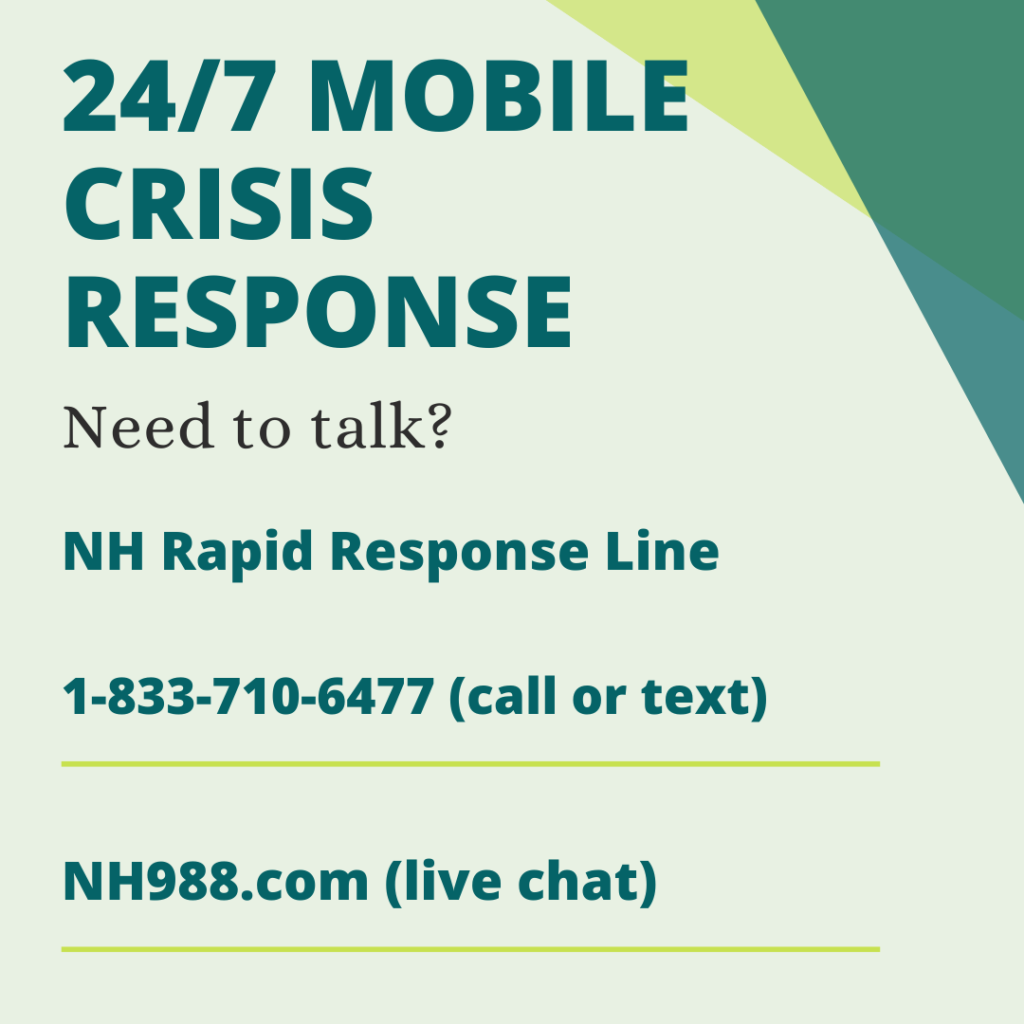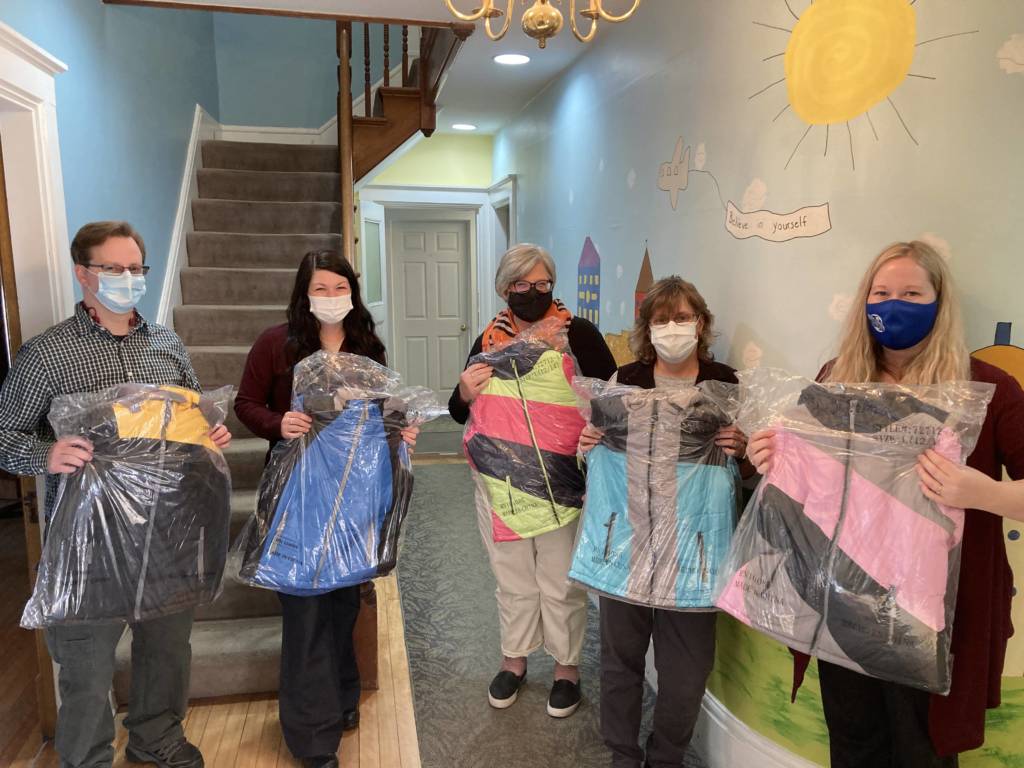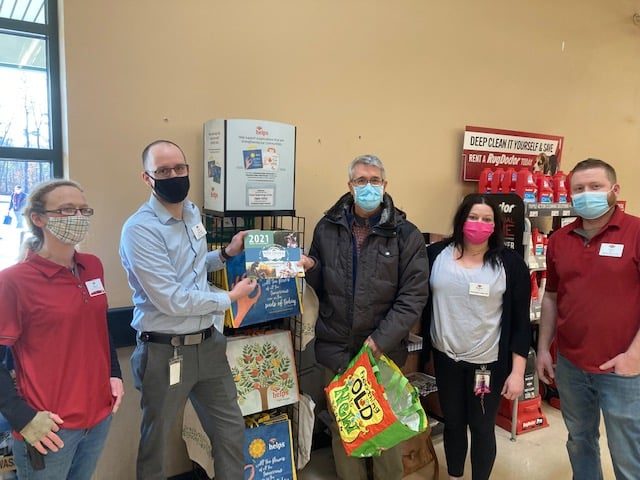West Central Behavioral Health provides people of all ages, serving children, families and adults, with advanced care to achieve and maintain quality of life. Hannaford has supported this nonprofit through the Community Bag and Bloomin’ 4 Good Programs.
Tell us about West Central Behavioral Health.
West Central Behavioral Health was founded in 1977 and was developed through a community initiative. A group of people got together and realized there was a need for mental health services in our region, which is the Upper Valley of the New Hampshire side of the Connecticut River. We support lower Grafton County and all of Sullivan County in New Hampshire.
Our organization was established and recognized as a community mental health center at the time and has now evolved into a community behavioral health center. The difference is that a mental health center typically works with clients suffering from mental illness. A behavioral health center works with clients who have mental illness and those suffering from substance use disorder. West Central covers the spectrum; many clients have co-occurring disorders, meaning these individuals have both a mental illness and substance use disorder. Our center can treat adults for both occurrences.
Our mission is to promote the health and quality of life for individuals, families and communities by providing treatment for mental illness and substance use disorders. Helping to reduce the bias and discrimination associated with these conditions is one of our goals. We envision a time when behavioral health services are fully available as needed, and the stigma of mental illness and substance use disorder is eliminated. Normalizing conversations around mental illness, mental wellness, substance use and misuse as being treatable is essential. People can overcome these disorders with evidence-based practices, compassionate support and case management.
We envision a time when behavioral health services are fully available as needed, and the stigma of mental illness and substance use disorder is eliminated.
What services do you supply to the community?
West Central provides a whole range of specialized services. It includes mental health treatment and therapy, outpatient care, case management and, residential, employment, and mobile crisis response services. We help people with physical health and well-being through integrated care. Primary care on the physical health side combined with mental wellness allows us to treat the whole person. The Claremont, New Hampshire, facility we run has a doctor’s office, so clients who cannot get care can see a doctor there. We also provide residential services in Newport and Lebanon, New Hampshire.
One new thing on the scene is 24/7 mobile crisis response services. This program has been put in place by the state of New Hampshire and is called the New Hampshire Rapid Response Access Point. It’s a call center and a toll-free number (833) 710-6477 (also, NH988.com for online chat) that New Hampshire residents can call and get live, trained crisis clinicians. Through conversation and a questionnaire, these clinicians determine if we need to step in with an in-person response team. This program is a powerful way to resolve situations without police, ambulances or emergency rooms, which often worsen a client’s symptoms.
The population of clients we serve is primarily Medicaid and Medicaid-eligible, low- to middle-income. We work with the most vulnerable people in our communities who often would have nowhere to turn.

What sets your organization apart from others in your community?
The mobile crisis response service has been hugely successful. We implemented it on January 1st, 2022, and the information we have collected from the first six months has reflected its success. Out of 113 crisis response outreaches, 92% have been resolved without visiting the emergency room, and 88% had no police involvement. Before this program, many of these calls would come straight through to the police department, and the typical response for a mental health crisis would go straight to the emergency room. The mobile crisis response service covers the entire state of New Hampshire, and now most crisis calls that come in are handled by the call center on the phone, with the rest getting an in-person outreach.
The call center is where people in crisis can speak directly with a clinician, and many situations can be resolved. It has created a helpful middle ground between evaluation and resolution. If a problem does rise to a certain level, we can step in with an in-person mobile crisis response outreach. The police are happy to work with us because they usually don’t have the time or training to deal with these situations. Often, the best place for someone is wherever they may already be. It could be at home, at school, or anywhere in the community where crisis clinicians can meet and have conversations to de-escalate the crisis by talking about what risk factors affect them and what protective factors they have that make their lives worth living. These are powerful conversations, and they work.
Tell us a story that illustrates your organization’s good work.
I’ll tell you a story of a situation with a high school student that happened a few months ago; it involved our mobile crisis response team. We were called and told a student had been talking to classmates about committing suicide. Two clinicians responded to the call and took great care to ensure the student was in a safe and comfortable space in the school. In this situation, the two were able to create an area with a comfortable chair that the student could walk in and sit down in without anyone directing them to do so. This type of engagement is essential, along with an easy conversation.
They then talked and went through an evaluation. The student was dealing with stress from family and school, which brought up thoughts that their life was better not lived. Our team helped the student understand the issues they were dealing with; they helped them understand that they had teachers, parents and friends who cared about them a great deal and wanted to see them succeed. They just talked, learning about each other. The clinicians spoke about themselves and the challenges they’d been through in life, creating a peer connection. And after an hour, the student felt good and ready to return to class.
Sometimes, these things can turn around very quickly, but if the student had been sent to an emergency room, it could have been a different situation. The student could have spent hours in the emergency room, which would have worsened things. Instead, we are able to follow up for 30 days once we have a crisis call. In this situation, the student was doing fine in that 30-day window, which was a huge success.
Helping a student avoid thinking about themself in a negative way, to know that life is worth living and that there are alternatives to dealing with stress, depression and emotional distress are the kinds of things we do every day. It makes a huge difference.
What is your most outstanding achievement or contribution to the community?
Recently, we were in touch with an organization in Massachusetts that delivers and donates winter coats to kids. Hearing about us here in New Hampshire, where it gets really cold, they sent 136 brand-new coats for our child clients. We are in the process of distributing them now. Knowing 136 kids will stay warm this winter is a great feeling.

This underscores much of the case management services that we do. Case managers are jacks of all trades in the mental health and behavioral health profession. They take care of the parent, the child and the family. Case managers help with grocery shopping, getting kids on the school bus, making sure parents are on track at work or helping them find a job if they need it. Managing all kinds of things, depending on the client, is what a case manager does best, offering a vast spectrum of care.
The other achievement we are proud of was received recently. We were awarded a federal grant from the Substance Abuse and Mental Health Services Administration (SAMHSA) portion of the federal government. These funds will enable us to work toward becoming a certified community behavioral health clinic. This grant validates that mental and behavioral healthcare has been underfunded for so long. The federal government is finally starting to put money towards this. There are now more than 450 certified community behavioral health centers nationally, and we are excited to be one of them.
What do you want people to know about West Central Behavioral Health?
West Central Behavioral Health is there for people regardless of their financial circumstances, 24 hours a day, seven days a week, for any crisis. Our mantra is to “call early and call often” because we don’t want a problem to escalate into a full-blown trauma. We’d rather get clients on the phone to talk with a clinician. The clinicians are compassionate, whether they are health mentors, therapists or psychiatrists. They want to make a difference in their clients’ lives.
This is what we are after, helping people by offering compassionate, evidence-based mental health and substance use disorder services. And we work with individuals of all ages, from early childhood to the elderly and everyone in between.
West Central Behavioral Health is there for people regardless of their financial circumstances, 24 hours a day, seven days a week, for any crisis.
How will you use the funds raised from the Hannaford Helps Community Bag and Bloomin’ 4 Good Programs?
The funds raised through the Hannaford Helps Bloomin’ 4 Good and Community Bag Programs go to our most financially distressed clients. Often, we have clients who have Medicaid, but the copays are still out of their budget. This is when we must figure out alternatives, so these clients do not lose vital care. The funds earned in the Community Bag and Bloomin’ 4 Good Programs help these vulnerable individuals keep their much-needed care going.
We are thrilled to be a part of the Hannaford Bloomin’ 4 Good and Community Bag Programs. The fact that we keep getting selected to benefit says that there are Hannaford employees that support what we do. It means that our community believes in the importance of behavioral health care.
Is there anything you would like to add?
The big picture is that we work in communities, schools and homes with a broad range of services. West Central Behavioral Health is a unique organization. For example, someone can find therapy and get a therapist. Then, as case managers, we can show up at your home on a Wednesday morning to ensure you’re out of bed and your kids are dressed and ready for school. Our clinicians tend to the details that may not be considered. Services are unique to each client’s needs.

